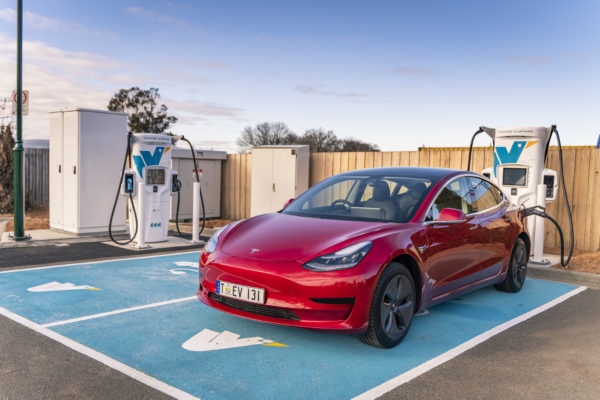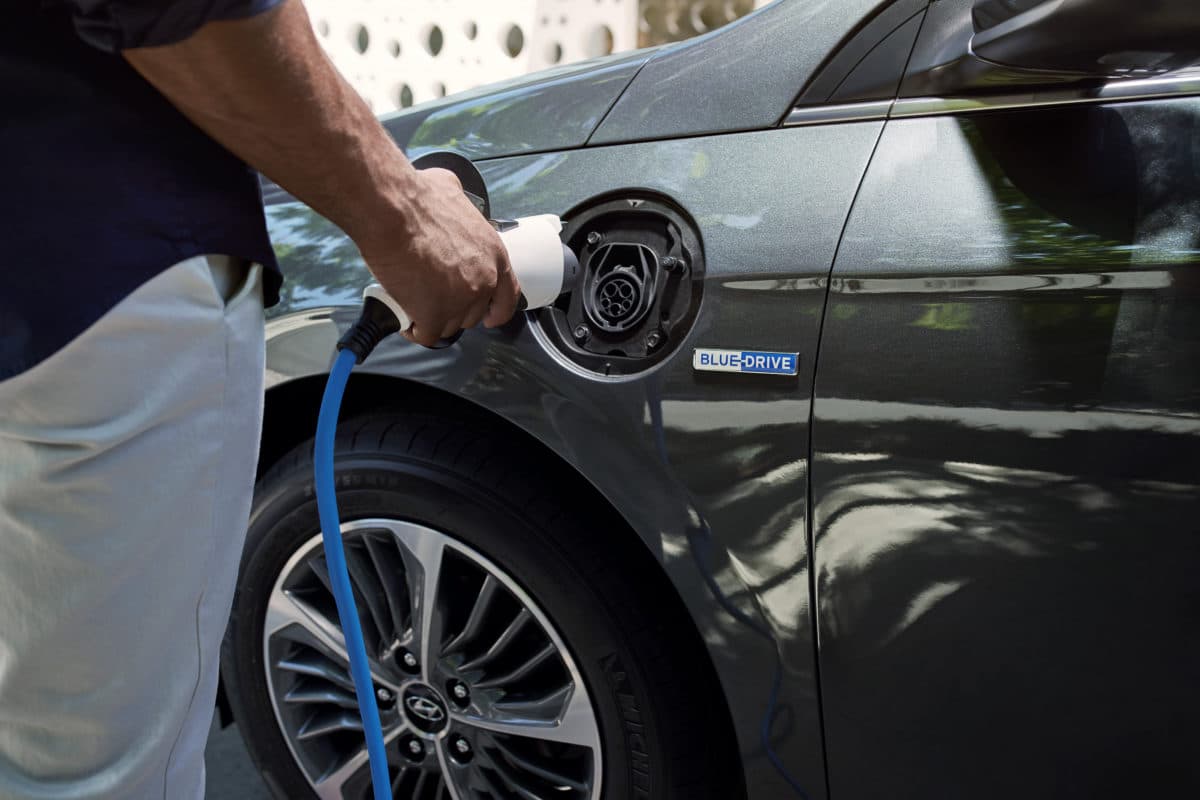Victorian Treasurer Tim Pallas has confirmed the State Government will introduce legislation into Parliament for its controversial new EV tax, his announcement coming less than 48 hours after Liberal MP Trent Zimmerman called on the Federal Government to cut its luxury car tax for low-emission vehicles and for states to offer lower registration charges for EVs in a bid to accelerate the transition away from internal combustion engines.
“If we are to achieve net zero emissions by 2050, which surely must become our goal, it must be a focus of our work,” Zimmerman told Parliament on Monday, adding that 19% of Australia’s greenhouse gas emissions come from the transport sector.
“We need to adopt the goal of reaching close to 100% electric or other low-emission vehicles in the new-car market by the mid 2030s.”
Zimmerman said it is absolutely vital government supports the transition to EVs and called for a unified approach, saying state and territory governments must look at measures like lower registration and stamp duty and even toll relief for EVs.
“We should be open to these approaches in Australia,” he said. “At the federal level, it is time we removed the luxury car tax entirely from low-emission vehicles.
“You do need co-ordination (from states and territories). They have the capacity to provide incentives, through their registration and tolling systems, and even stamp duty. And on the flip side… as we’ve seen from Victoria, they also have the capacity to interrupt what we’d hope would be a natural progression for EVs.”
Zimmerman’s highlighting of Victoria’s proposed EV tax had little if any effect on the State Government with Pallas on Wednesday reaffirming plans to introduce a distance-based charge for all Victorian-registered zero- and low-emission vehicles from July 1 2021.

Image: Evie Networks
A 2.5 cent/km charge will apply to electric and other zero-emission vehicles, including hydrogen vehicles, and a 2.0 cent/km charge would apply to plug-in hybrid-electric vehicles.
Pallas said on average, EV owners will pay an additional $330 a year in distance-based road usage charges and plug-in hybrid-EV owners will pay an additional $260 a year. This compares to almost $600 a year paid by the average internal combustion engine vehicle owner in fuel excise.
“These reforms ensure all motorists pay their fair share to use our roads while we continue to incentivise the use of zero or low emissions vehicles,” Pallas said.
“Introducing a road usage charge now, before take-up increases substantially, ensures that everybody pays a fair and sustainable charge for the use and the wear and tear on our road network and that means safer roads.”
Zimmerman however blasted the Victorian Government’s plan, labelling it a “disaster”.
“The Victorian approach is a disaster for encouraging motorists to buy an electric vehicle,” he said.
Electric Vehicle Council (EVC) chief executive Behyad Jafari echoed Zimmerman’s stance, saying the Victorian Government’s move was particularly baffling.
“Victoria is now doing what no other jurisdiction on earth does by discouraging people from buying electric vehicles by slugging them with a special tax,” he said.
“The rest of the developed world is doing everything possible to encourage the uptake of electric cars, but Mr Pallas reckons it’s time to slam the brakes on in Victoria.
“You don’t need to be much of an economist to know that if you whack a big new tax on something you discourage its use.”

Image: General Motors
Figures provided by the EVC show Australian EV sales are stagnating at a time when the rest of the world is hitting the accelerator hard.
Just 6,900 EVs sold in Australia in 2020, an increase of about 200, or 2.7% on the previous year. That compares with a 43% surge in EV sales globally to 3.2 million.
EVs make up 4.2%, or 134,400, of all cars sold worldwide. In Australia, they account for a mere 0.7% of the 1 million cars sold annually.
By comparison, EVs in the EU increased their market share from 3.8% in 2019 to 10.2% in 2020. In the the UK, it was 3.1% in 2019 against 10.7% in 2020 and in Norway, it rose from 56% in 2019 to 75% in 2020.
“Australian drivers are ready to join the exciting global electric car transition, but our politicians are yanking the handbrake,” Jafari said.
“There’s simply no sugarcoating it at this point – Australia has marked itself out as a uniquely hostile market to electric vehicles.
“We have no targets, no significant incentives, no fuel efficiency standards – and in Victoria we even have a new tax on non-emitting vehicles.
“Our governments are apparently doing everything possible to ensure Australia is stalled with its hazards on while the rest of the world zooms into the horizon.”
This content is protected by copyright and may not be reused. If you want to cooperate with us and would like to reuse some of our content, please contact: editors@pv-magazine.com.









By submitting this form you agree to pv magazine using your data for the purposes of publishing your comment.
Your personal data will only be disclosed or otherwise transmitted to third parties for the purposes of spam filtering or if this is necessary for technical maintenance of the website. Any other transfer to third parties will not take place unless this is justified on the basis of applicable data protection regulations or if pv magazine is legally obliged to do so.
You may revoke this consent at any time with effect for the future, in which case your personal data will be deleted immediately. Otherwise, your data will be deleted if pv magazine has processed your request or the purpose of data storage is fulfilled.
Further information on data privacy can be found in our Data Protection Policy.